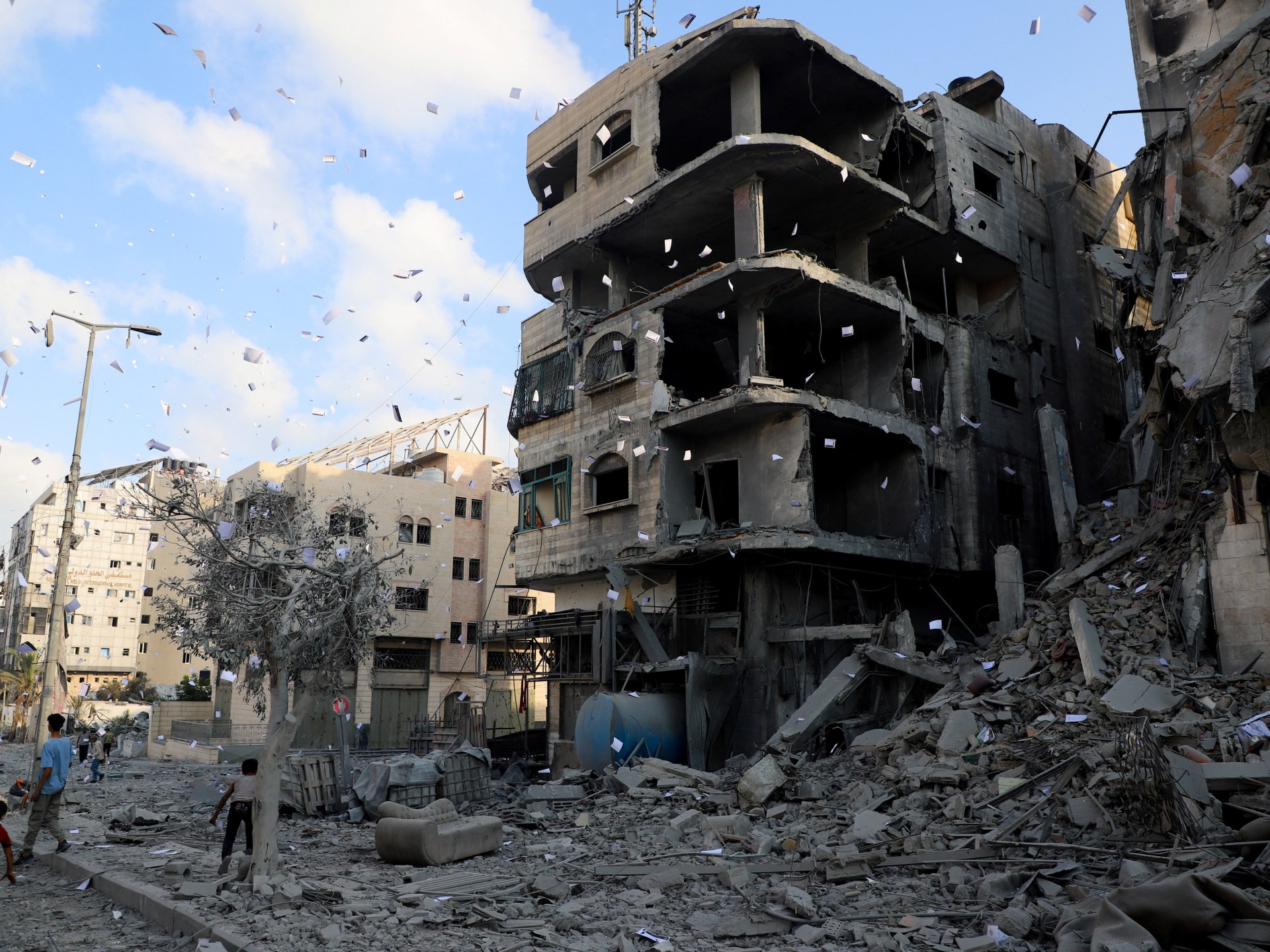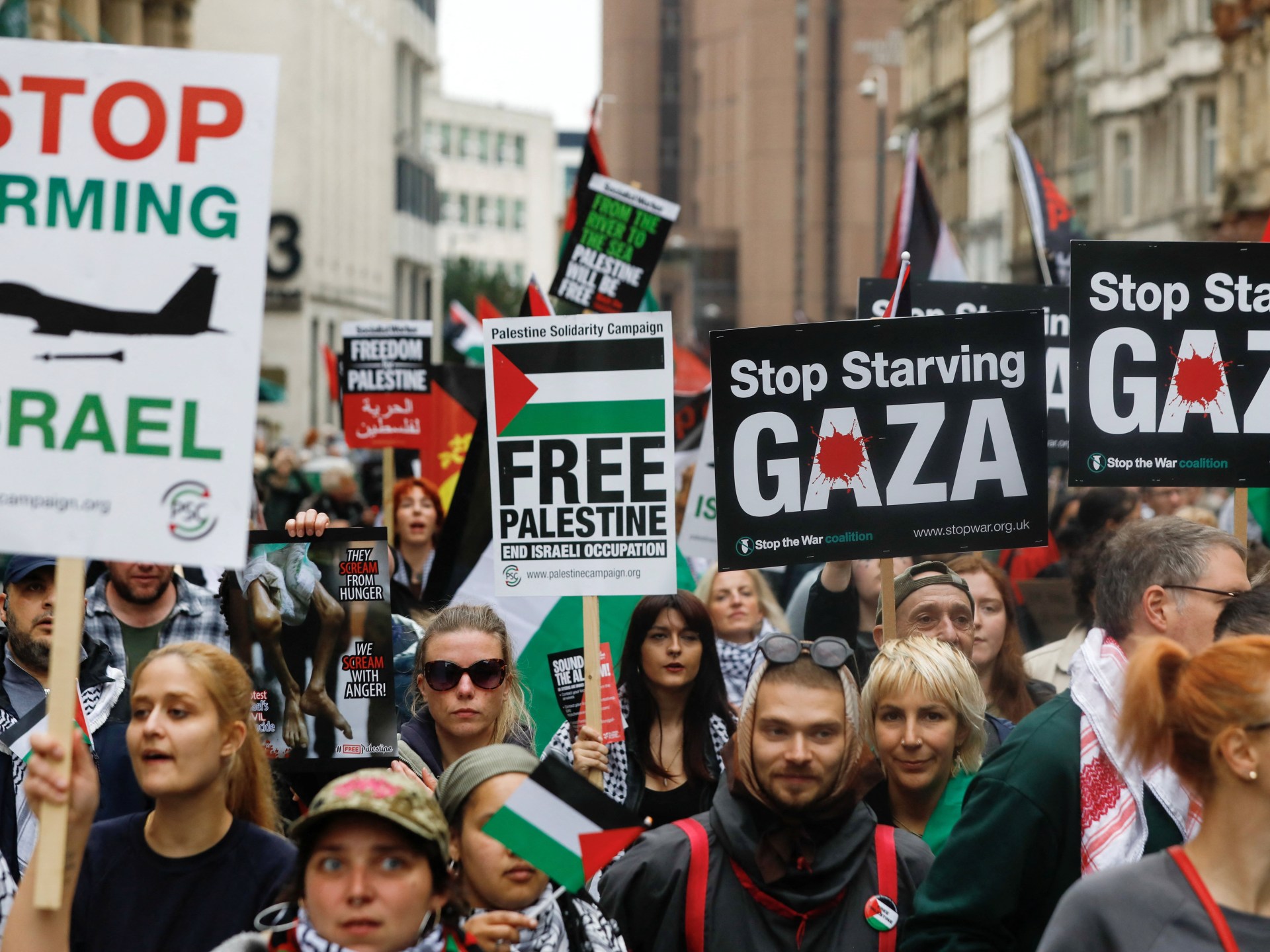Netanyahu also apologises for violating Qatari sovereignty and affirms Israel will not conduct such an attack again.
Israeli Prime Minister Benjamin Netanyahu has apologised to Qatar for the killing of a Qatari citizen during an unprecedented Israeli attack on Hamas leaders in Doha this month, which drew global condemnation.
Qatari Prime Minister Sheikh Mohammed bin Abdulrahman bin Jassim Al Thani received the apology on Monday in a joint call from United States President Donald Trump and Netanyahu during their meeting at the White House.
Recommended Stories
list of 4 itemsend of list
“As a first step, Prime Minister Netanyahu expressed his deep regret that Israel’s missile strike against Hamas targets in Qatar unintentionally killed a Qatari serviceman,” a White House statement said.
“He further expressed regret that, in targeting Hamas leadership during hostage negotiations, Israel violated Qatari sovereignty and affirmed that Israel will not conduct such an attack again in the future.”
At least five lower-ranking Hamas members and a Qatari security official were killed in the September 9 attack, which targeted senior Hamas leaders involved in negotiating a US-backed ceasefire. Hamas’s top leaders survived the assassination attempt.
It was the first Israeli attack on Qatar, a key mediator in ceasefire efforts and host of the US military’s largest base in the Middle East, Al Udeid.
Qatar’s Ministry of Foreign Affairs confirmed the call “as part of US efforts to address the repercussions of the Israeli aggression that targeted a residential neighbourhood in Doha city, which included housing for the Hamas negotiating delegation, resulting in a blatant violation of the sovereignty of the State of Qatar.”
“At the beginning of the call, the Prime Minister and Minister of Foreign Affairs expressed his gratitude to the US President for his efforts to achieve peace in the region, including guarantees to prevent a recurrence of aggression against the State of Qatar and the US commitment to its defense partnership with Qatar,” the ministry said.
“For his part, the Israeli Prime Minister apologised during the call for the attack and the violation of Qatari sovereignty, which resulted in the martyrdom of Qatari citizen Badr Al-Dosari, pledging not to repeat any targeting of Qatari territory in the future.”
In a post on X, Netanyahu’s official X account quoted him as telling the Qatari prime minister: “Mr Prime Minister, I want you to know that Israel regrets that one of your citizens was killed in our strike. I want to assure you that Israel was targeting Hamas, not Qataris.
“I also want to assure you that Israel has no plan to violate your sovereignty again in the future, and I have made that commitment to the president.”
The prime minister then went on to claim “Israel has grievances against Qatar, from support for the Muslim Brotherhood to how Israel is portrayed on Al Jazeera to support for anti-Israel sentiment on college campuses”.
United Nations Secretary-General Antonio Guterres condemned the strike as a “flagrant violation” of Qatar’s sovereignty and territorial integrity. The attacks also saw nearly 60 Muslim countries gathering in Doha to show their solidarity.
After Netanyahu’s “deep regret” over attacking Qatar, the White House said Qatar’s prime minister “welcomed these assurances, emphasising Qatar’s readiness to continue contributing meaningfully to regional security and stability. Prime Minister Netanyahu expressed commitment to the same.”
Sultan Barakat, a professor at Hamad Bin Khalifa University in Qatar, said Netanyahu’s reported call to apologise was “significant”.
“Qatar has said from the beginning that it would not be able to continue mediation efforts without a public apology and a confirmation from Netanyahu that he won’t attempt to do it again,” Barakat told Al Jazeera.
“It is important not just for the mediation between Hamas and Israel but for the whole portfolio of mediation in general. You can’t protect the space for mediation when parties to the conflict want to settle their accounts directly,” he added.




Leave a Comment